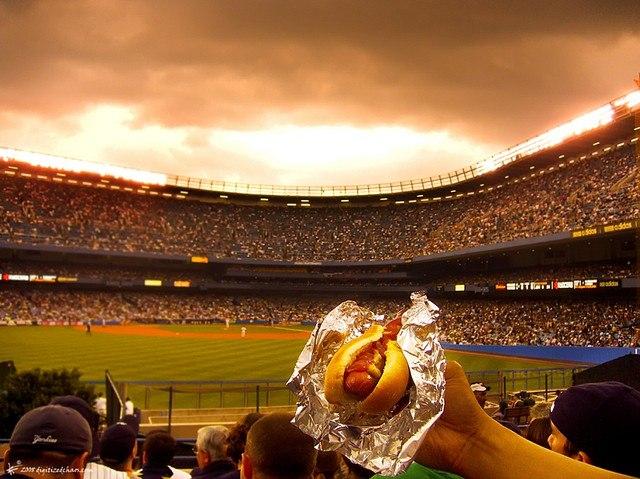
Editor’s Note: This post is part of an ongoing student blogging series entitled The Business Of Sports & Sustainability. This “micro-blog” is the product of the nations first MBA/MPA certificate program dedicated to sustainability in the sports industry. You can follow the series here.
By Zachary Worthington
In the U.S., we waste around 40 percent of the food we produce, the equivalent of $165 billion. This happens all along the supply chain, from the produce left to rot in the field (curved cucumber, anyone?) to the pre-warmed hot dogs at the stadium that don’t get sold. Besides wasting an opportunity to feed people, (45 million Americans didn’t have enough to eat last year), food waste is also a cornucopia of valuable inputs (fertilizer, water, fuel, time). And when food is wasted in a landfill it is a major contributor to greenhouse gas emissions.
The good news is that, as a result of some diligent work in the world of sports greening, a lot of the uneaten prepared food at major sporting events -- including those pre-warmed hot dogs -- are now being fed to those who need it. This also means that the venues avoid paying to have that food trucked off to compost piles or landfills.
It may seem silly that a sports venue would pay to dispose of food after they have paid for it. Businesses that serve food are bound by specific rules that are built around what is known as time and temperature sensitivity. Simply, these rules are intended to keep you from getting sick, while holding food vendors liable if you do. But for those of us that have ignored a rule in our lives and lived to tell about it (anyone?), we know the world is not a black-and-white place, and there is room for common sense. Thanks to a federal law, the Bill Emerson Good Samaritan Food Donation Act, companies can now use basic safe handling techniques and donate prepared food to hungry people without worry of a lawsuit.
To enhance their sports greening initiatives, sports venues can take advantage of access to expanding pipelines for donating food to local organizations. One example of this is Rock and Wrap it Up, an organization that has helped multiple business sectors, including over 70 sports franchises, connect their food leftovers with local food banks. Currently, all 30 NHL teams redistribute uneaten food to their local communities. Score!
So, what can you do? The next time you are at a college basketball game, or even attending a Super Bowl party, ask about it. Ask what they do with leftover food. When you’re not chewing, that’s the easy thing you can do with your mouth. Asking questions starts important conversations and sends clear signals that reducing food waste is something that matters. For example, check out how the Cleveland Browns are turning food waste into energy, and then think about how your team can get in the game. When we are talking about hot dogs, it’s crucial to be curious and helpful to be “frank.”
Image credit: Flickr/digitizedchaos
Zachary Worthington is a food entrepreneur, culinary artist, and sports enthusiast. He is an MBA graduate of Presidio Graduate School with a focus on equitable food systems.

This “micro-blog” is the product of the nations first MBA/MPA certificate program dedicated to sustainability in the sports industry. Led by Dr. Allen Hershkowitz, Senior Scientist at NRDC, The Business of Sports and Sustainability certificate is housed at Presidio Graduate School, the nation’s top sustainable MBA program. Posts explore the connection of sustainability with operations, branding and fan engagement of the sports industry including leagues, teams, venues, sponsors, vendors and surrounding communities.














